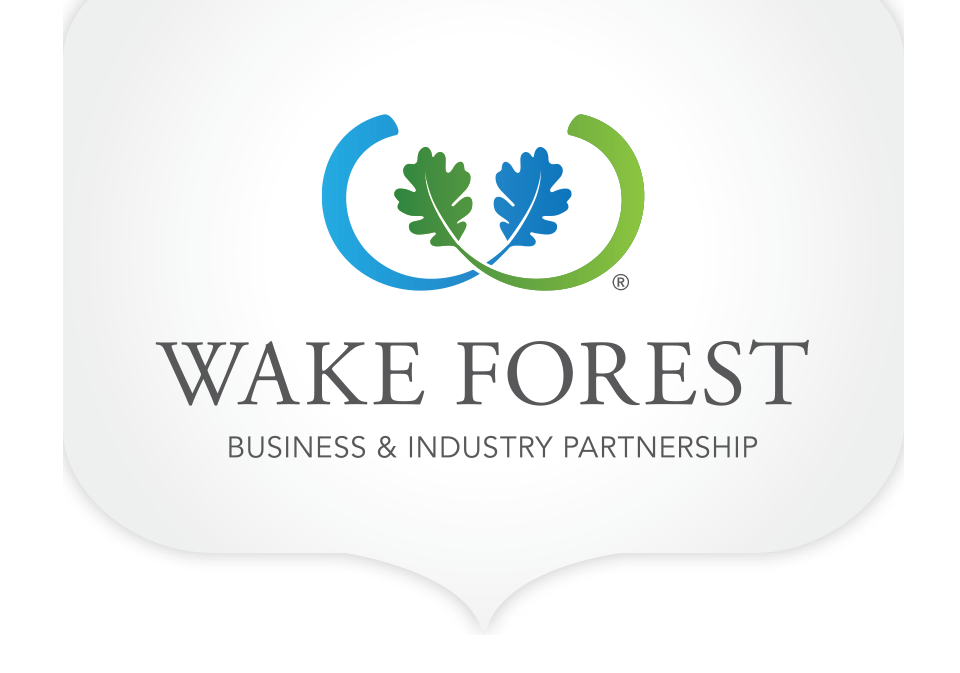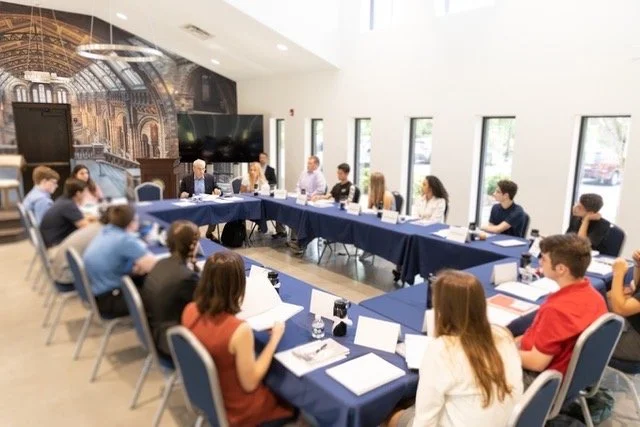Though it seems paradoxical, as automation and artificial intelligence take on more tasks once performed by humans, the premium placed on skilled workers is higher than ever. Nationally, there are 1.7 jobs available for every unemployed worker, according to the U.S. Department of Labor. Prior to the pandemic, the ratio was about 1.2.
Fortunately for Wake Forest businesses, there is a healthy stream of well-prepared graduates coming out of local secondary schools, colleges, and universities.
“From our beginnings as the home of Wake Forest College, our town and its residents have always placed a great deal of emphasis on educational excellence,” says Jason Cannon, President of the Wake Forest Business & Industry Partnership (WFBIP). “That legacy is now one of the main qualities that set the Town of Wake Forest apart as a destination for knowledge-based businesses and people.”
An innovative partnership between Wake County Public Schools and Wake Tech Community College has led to the establishment of the North Wake College and Career Academy. Housed in a renovated Winn-Dixie on Durham Road, the academy enables high school students in Wake Forest to earn tuition-free industry credentials, Associate degrees, and college transfer credits while still in high school. Dual-enrollment opportunities utilize Project Based Learning, a teaching model that exposes students to complex, real-world scenarios.
“Our students are able to complete a high school diploma, receive certification in their program area, and earn college credits,” explains Dr. Elizabeth Battle, principal of North Wake College and Career Academy, which opened in 2017. “Our program areas -- Culinary, Early Childhood Education, Emergency Medical Technician, Information Technology, and Hospitality -- offer immediate employment opportunities, and students may apply the credits they receive to an Associate's degree or a four-year degree.”
Wake Forest is also home to the first Thales College, which enrolled its inaugural freshmen class last fall. The college is housed in 10,200-sq.-ft. of space on Heritage Trade Drive, adjacent to Thales Academy’s PreK-5 campus. “Thales College is unlike any other college,” says founder Bob Luddy. “Most colleges and universities teach the Liberal Arts and offer professional degrees. Thales College demonstrates how knowledge is linked across the disciplines and how the Liberal Arts support professional life, as well as the good life.”
Well-known in North Carolina educational and business circles, Luddy is CEO of CaptiveAire Systems, a leading maker of commercial kitchen ventilation systems that employs over 1,300 workers and has manufacturing sites in six states. Luddy is no stranger to educational innovation. In 1998, he founded Franklin Academy, a charter school that now serves 1,200 K-12 students across three campuses in Wake Forest. Luddy established Thales Academy in 2007 with just 38 students.
Emphasizing classical education, Thales Academy campuses now enroll about 5,000 students across 12 campuses in three states. Its location in Rolesville educates 685 students from grades 6 to 12. The Academy’s recent growth spike is linked to the closure of K-12 public schools during the COVID-19 pandemic.
Thales College grads will be classically educated in the humanities with specific areas of specialization that include mechanical engineering. “This means they will have both liberal arts and technical skills,” Luddy says. “Both are important for professionals.” Students participate in internships during their matriculation at Thales College, an experience that acclimates them to competitive work environments. Socratic discussions, an Oxford tutorial program, and one-on-one mentoring are also embedded in the curriculum. Affordability is also a hallmark at Thales College: tuition is just $4,000 per semester.
“All of this plus the innovative ideas, passionate spirits, and kind hearts of our students have created a camaraderie that is indescribably special at Thales College,” Luddy adds. He expects Thales College will one day expand beyond its Heritage Trade Drive building, which has six classrooms and several student study areas. “Our first mission is to establish Thales College as a high quality, cost-effective alternative to traditional college,” he says. Thus far, all students have come from local public, private, and charter schools.
Competitive educational amenities offer communities more than just bragging rights. “In today’s economy, success-minded companies demand access to reliable streams of talented, work-ready graduates,” says WFBIP’s Jason Cannon. “Having facilities like Thales College and North Wake College and Career Academy gives employers confidence when they bring their strategic business plans to Wake Forest.” Cannon says that pioneering business leaders like Bob Luddy are vital links in educational innovation that shapes next-generation workers. “Bob knows exactly what skills and competencies employers need from current and future graduates – and his leadership is among the unique resources our local economy can be very grateful for.”





